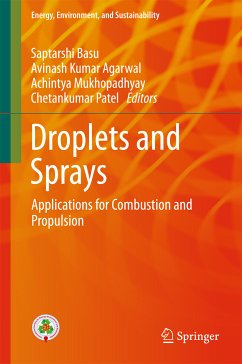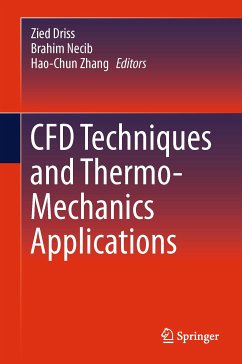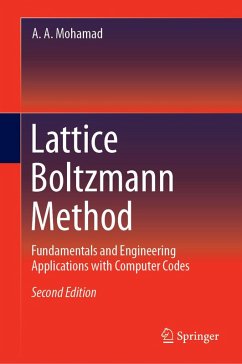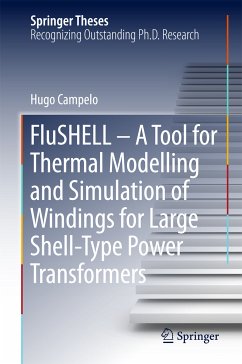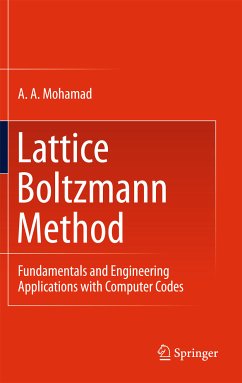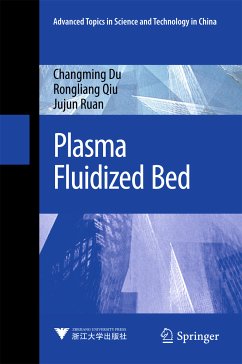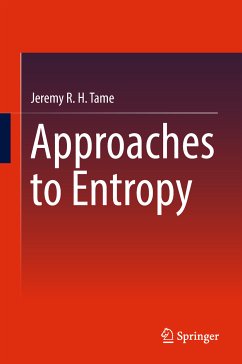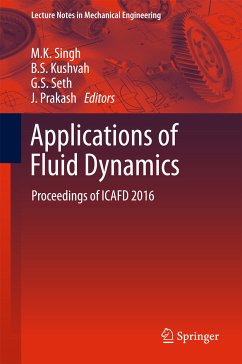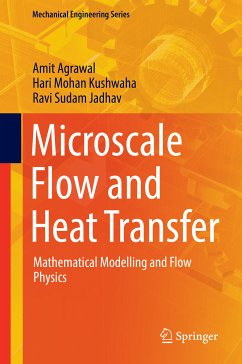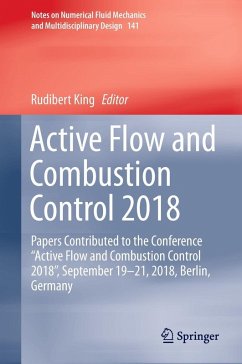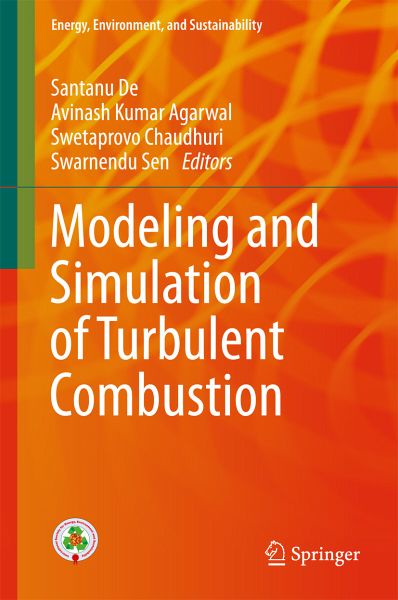
Modeling and Simulation of Turbulent Combustion (eBook, PDF)

PAYBACK Punkte
96 °P sammeln!
Provides a holistic view of turbulent combustion in terms of the fundamentals, modeling, and numerical simulationsDiscusses direct numerical simulation (DNS), large eddy simulation (LES), and Reynolds-averaged Navier-Stokes (RANS) models of premixed and nonpremixed combustionOutlines the state-of-the-art and emerging combustion models, such as, probability density function (PDF), conditional moment closure (CMC), and multiple mapping conditioning (MMC) methodsCovers various aspects of turbulent combustion, including the role of high-performance computing in combustion simulations, optimization...
Provides a holistic view of turbulent combustion in terms of the fundamentals, modeling, and numerical simulations
Discusses direct numerical simulation (DNS), large eddy simulation (LES), and Reynolds-averaged Navier-Stokes (RANS) models of premixed and nonpremixed combustion
Outlines the state-of-the-art and emerging combustion models, such as, probability density function (PDF), conditional moment closure (CMC), and multiple mapping conditioning (MMC) methods
Covers various aspects of turbulent combustion, including the role of high-performance computing in combustion simulations, optimization, and reduction techniques for chemical kinetics
Includes advanced topics, such as the modeling of spray combustion, stratified combustion, and thermoacoustic instabilities
Presents numerical simulations of combustion in various engineering applications, such as gas turbines, internal combustion engines, and Scramjets (Supersonic Combustion Ramjets)
Discusses direct numerical simulation (DNS), large eddy simulation (LES), and Reynolds-averaged Navier-Stokes (RANS) models of premixed and nonpremixed combustion
Outlines the state-of-the-art and emerging combustion models, such as, probability density function (PDF), conditional moment closure (CMC), and multiple mapping conditioning (MMC) methods
Covers various aspects of turbulent combustion, including the role of high-performance computing in combustion simulations, optimization, and reduction techniques for chemical kinetics
Includes advanced topics, such as the modeling of spray combustion, stratified combustion, and thermoacoustic instabilities
Presents numerical simulations of combustion in various engineering applications, such as gas turbines, internal combustion engines, and Scramjets (Supersonic Combustion Ramjets)
Dieser Download kann aus rechtlichen Gründen nur mit Rechnungsadresse in A, B, BG, CY, CZ, D, DK, EW, E, FIN, F, GR, HR, H, IRL, I, LT, L, LR, M, NL, PL, P, R, S, SLO, SK ausgeliefert werden.



